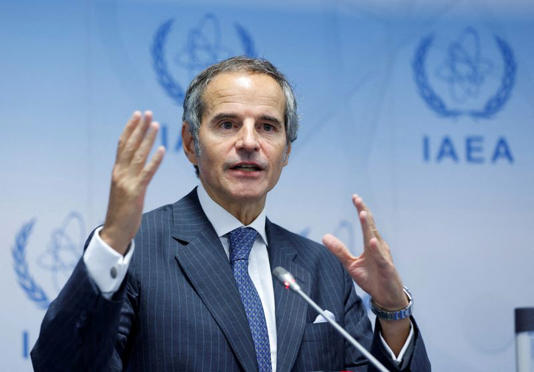
By Jonathan Landay
WASHINGTON (Reuters) -The world must not fail in Iran as it did in North Korea, which kicked out International Atomic Energy Agency inspectors and developed nuclear weapons, the U.N. nuclear watchdog’s chief Rafael Grossi said on Monday.
The IAEA has not had access to North Korea since Pyongyang expelled its inspectors in 2009 and it now observes its nuclear advances from afar including through satellite imagery.
The IAEA has regular access to Iran’s declared nuclear facilities. But as a 2015 deal between Tehran and major powers has eroded over the past five years, extra monitoring equipment added under the deal has been removed at Iran’s behest and the IAEA can no longer perform snap inspections at undeclared sites.
“The IAEA is the eyes and ears and presence of the international community in Iran,” Grossi told an annual U.S. State Department arms control conference in a recorded message, adding he was extremely concerned about Iran’s nuclear programme.
“We have to deploy every effort to prevent this problem, this current debate on what is happening and what can be done in Iran (from) becoming a failure on the part of the international community to prevent a country that has capabilities which could potentially lead to the development of nuclear weapons from doing it,” he added.
“We saw the failure of this type in the Democratic People’s Republic of Korea, North Korea.”
Grossi’s last quarterly reports on Iran showed the Islamic Republic now has enough uranium enriched to 60% purity, close to the roughly 90% of weapons grade, for almost three nuclear bombs by the IAEA’s own theoretical definition if it were enriched further. Iran denies seeking nuclear weapons.
The IAEA is also locked in various standoffs with Iran including on identifying the origin of uranium particles found at two undeclared sites, getting monitoring equipment that has been removed re-installed and Iran’s recent “de-designation” of some IAEA inspectors.
Source: Reuters/Writing by Francois MurphyEditing by Chris Reese and Josie Kao
